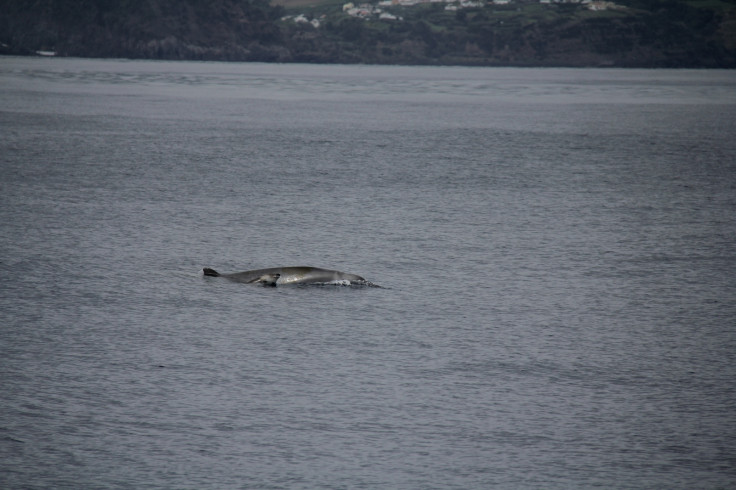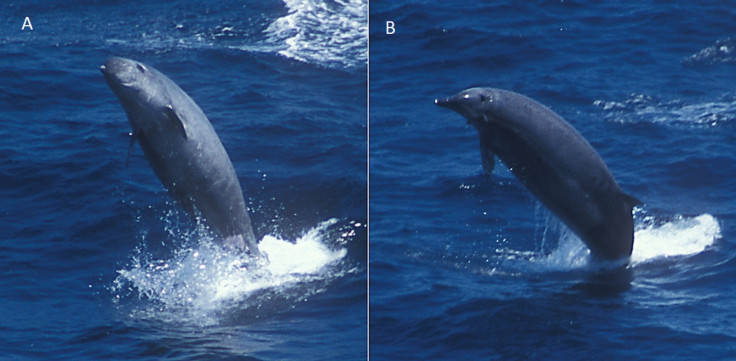Rarely seen True's beaked whale caught on film for first time
There have only ever been a handful of sightings of True's whales alive.
A group of True's beaked whales – an elusive species that spends the vast majority of its time deep underwater – has been filmed for the first time.
True's beaked whales don't tend to follow boats and are rarely seen performing aerial acrobatics like dolphins. As a result they're extremely hard to spot and there have been only a handful of confirmed sightings of them. The species was first discovered by Frederick True in 1913, giving them their common name.
Now a handful of rare pictures of the whales, notes on a new coloration of the whale and the underwater footage are collected together in a paper published in the journal PeerJ. One of the images is the first of a True's whale calf with its mother.
Another of the images of a dead True's whale – washed up on a beach in El Hierro in the Canary Islands – shows a unique white head coloration never before seen in the species. Instead of blending from white to grey below the whale's head, the line is much sharper between the white of the animal's beak and the dark purplish-grey of the rest of its body.
The study also reports the first molecular identification of a True's whale in the north-east Atlantic. A tissue sample from the stranded whale in the Canary Islands, which was a subadult male.
True's whales are more than 5 metres long, with females measuring up to 5.4m from tip to tail, according to the Whale and Dolphin Conservation. They are thought to spend more than 90% of their time in deep waters. They can dive to depths of about 3km and hold their breath for up to 2 hours. True's whales are part of the Ziphiidae family, which includes 22 species of beaked whale, many of which are poorly understood.
The whales live in temperate waters in the North Atlantic –way up in the northern hemisphere – but have also been found in the Atlantic between Brazil and South Africa; in the southern hemisphere.

"Live sightings of many beaked whale species are rare events and just a few have been made for True's beaked whales," the authors, led by Natacha Aguilar de Soto of the University of St Andrews in the UK, write in the paper.
According to the International Union for Conservation of Nature, there is currently too little known about True's whales to consider them an endangered species.

© Copyright IBTimes 2025. All rights reserved.






















